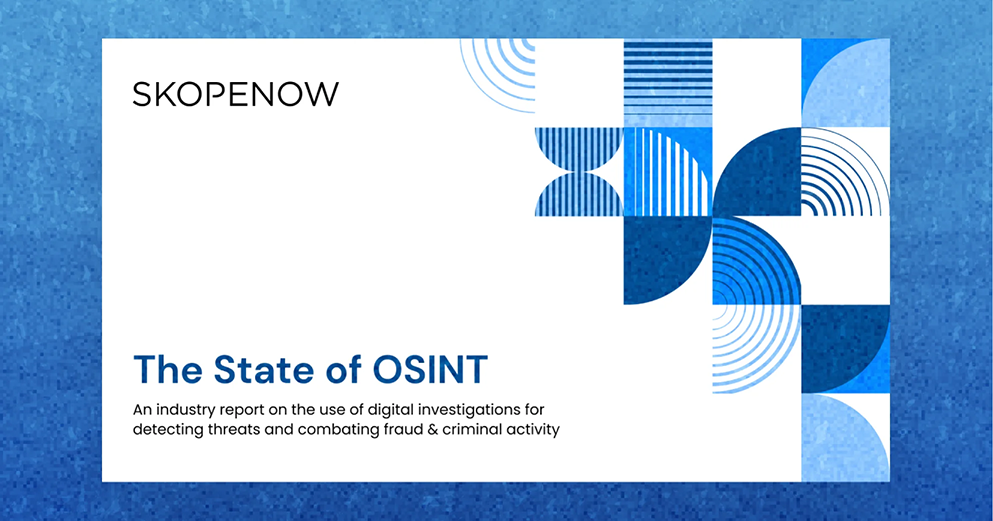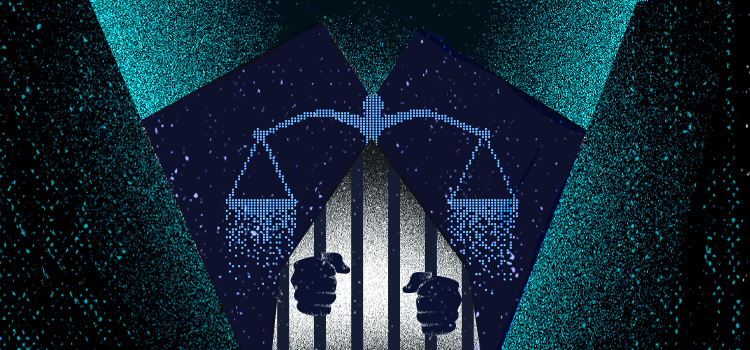February 24, 2021
The Evidence Challenge

Laura O'Driscoll
Content Manager
During 2020, financial and white-collar crime have reached record highs, while public prosecution has reached record lows. If the low prosecution rates of high-level executives after the last financial crisis are anything to go by, these statistics are unlikely to improve in the near future. With the right open source intelligence (OSINT) capabilities, however, private individuals and businesses can step in to fill the gap.
For many types of environmental and white-collar crime, private citizens can bring actions to enforce the law. This can be an effective way to pursue the kinds of complex, international financial fraud on which it is increasingly challenging to engage regulatory bodies. The private sector often has the advantage in terms of efficiency and transnational agility, so their main challenge is access to information. To obtain evidence that is not just useful but usable, private prosecutors have to be both more crafty and more resourceful in their use of investigations without the formal powers available to the police.
Why is financial crime so hard to prosecute?
According to the FBI, the annual cost of white-collar crimes to businesses in the United States (including fraud, bribery, embezzlement, insider trading, cybercrime, racketeering, money laundering, and identity theft) is over $500 billion. It is estimated that money laundering alone costs the US over $300 billion a year: enough to buy the Empire State Building 158 times over.
Governments, however, tend only to pursue the cases they think they can win. And financial crime sets the bar high. Opaque corporate structures, obscured beneficial ownership, cash or small-dollar transactions, trade-based money laundering, misuse of banks, and virtual currencies, are just some of the tools used by sophisticated criminals to muddy the waters. The transnational arena within which they maneuver remains challenging for officials to pursue efficiently, if not effectively. And cases may ultimately come down to a point as esoteric as awareness: did the accused actually know that their actions were illegal? Fail to prove this, and they cannot meet the requisite burden of proof.
With limited time, budget, and resources, perhaps the lack of official engagement is, after all, unsurprising. Much financial crime is seen as being simply too cryptic: too vast, too complicated, too opaque, and too dynamic to pin down with the available resources.
What options does the private sector have?
Over, then, to the private citizen. Where officials have refused or failed to investigate or prosecute a crime, private individuals and businesses have a wide range of available options - including class action lawsuits and so-called “citizen suits" - to enforce public obligations.
Where these typically require plaintiffs to demonstrate “standing" - injury directly caused by the defendant, or serious potential thereof - statutes respecting certain environmental and white-collar crimes give a private right of action to citizens with little or even no claim of direct harm. This “special prosecutorial role” can be used to promote the public interest, not merely to seek personal vindication or compensation.
The advantages are significant on both sides. Private actions can bring violations to light that would otherwise remain unaddressed and provide officials with valuable information that renders criminal prosecution possible. Where the State’s reluctance has more to do with will than ability, private actions can draw the public’s eyes towards alleged crimes, making prosecution harder for officials to avoid.
Catching the International Man of Mystery
There is a particular advantage in transnational cases - where financial and white-collar crime so often are - as various jurisdictions make wider use of private prosecution than the US. Financial crime victims in the United Kingdom, for example, are increasingly utilizing it as a faster, cheaper alternative to civil litigation. Unlike in the US - where private actions are limited to claims for monetary sanctions and injunctive relief - private prosecution in the UK can threaten defendants with severe criminal punishment, including a custodial sentence and a criminal record.
Specific statutes allow for prosecution to be brought in the UK if a “relevant event” took place in England or Wales - regardless of whether the suspect is a British citizen. Equally, if a person has a sufficiently “close connection to the UK” then their acts and omissions overseas have extra-territorial application. They may be a British citizen; they may be the director, shareholder, or employee of a UK company; they may have conspired with someone in the UK, or they may have entered the country at some point during the commission of the offense. If your investigations can establish a sufficient connection, you can bring the action.
From Private Intelligence to Private Action: Building a Case
Where the State is unable or unwilling to prosecute, the private sector clearly has powerful options available to take up the fight against financial crime. But without the State’s access to information, they will have to close the gap with high-quality, properly applied OSINT. Using OSINT well means knowing what it can do for you, and having the tools to best exploit it in areas where you do have the advantage:
The right capabilities make advantages actionable. Whilst the private sector cannot match the powers available to statutory bodies, they often have the agility and resources to move further faster and do more with less. Increasingly, as much valuable information can be extracted from the open source internet as from secret or privileged documents. Not just useful in itself, this information can be the thin end of the wedge: giving prosecutors sufficient grounds to apply for official access to privileged records. The pace and volume at which open source information becomes accessible, not to mention its widespread dispersal, is only useful to those with the specialist skills, transnational scope, and technological capability to match it.
Analysis turns information into intelligence. Valuable information can be found in anything from company accounts to emails, tax returns, export licenses, or social media travelogs. But in complex financial crime, the real value is in how this information ties together. The ability not just to rapidly identify and verify evidence within the known parameters, but to develop findings analytically, and identify new avenues for evidence collection (through association and behavioral analysis, for example) is critical.
Fail to prepare, prepare to fail. Human intelligence (HUMINT) is a critical area for evidence collection but is one of the trickiest to navigate in a legal context. OSINT preparation will pave the way not just for accountability and operational security, but for actionable results. The best witness statements, for example, come from the most incisive interviews. To play the person - to ask the right questions - you have to know the person: their likes and dislikes, loyalties and motivations, habits, quirks, reference points, and experiential knowledge. You need to know a person’s “normal,” in order to identify abnormal behavior. And you need to know something of their truth, to spot the lies and contradictions.
Use it or lose it. All investigative operations should be neatly balanced with respect for the spirit of the law. Evidence is useless if it is not permissible. The ability to keep thorough, in-depth records of all investigative activities is therefore essential: as is continuity in the handling of exhibits, and a scrupulous approach to disclosure. Prosecutors will want usable proof that all methods used to obtain evidence were necessary, proportionate, and compliant. Advanced technological capabilities are an effective way to minimize human error: automatically logging and archiving investigative activities and materials, in a manner that is both court-compliant and user-friendly.


